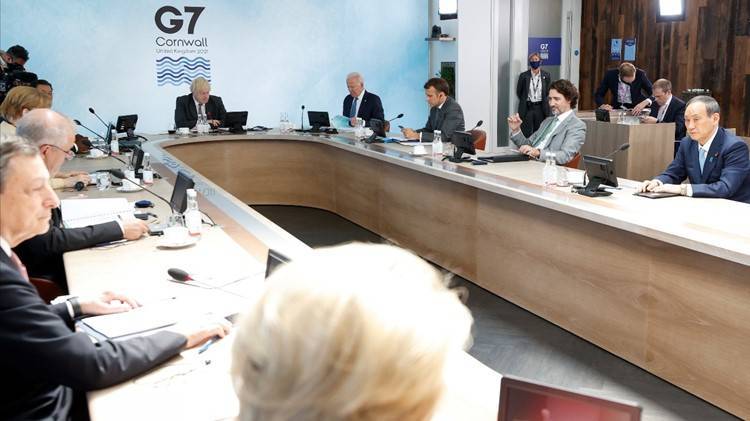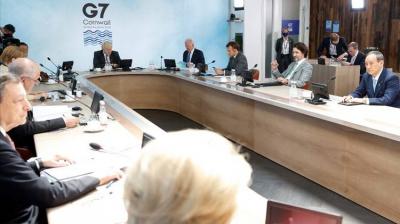Leaders of the G7 countries demonstrated a significant degree of consensus following their three-day summit in Cornwall, southwest England. This summit was the first in nearly two years and marked a return to in-person attendance after long months of video conferences due to the COVID-19 pandemic. Led by Washington, the leaders sought to show unity on major global issues, ranging from climate change to the pandemic and the revival of the global economy.
In light of increasing calls for solidarity in recent months, the group committed to distributing over a billion doses of COVID-19 vaccines by the end of 2022, aiming to eradicate the pandemic, as announced by British Prime Minister Boris Johnson at the conclusion of the summit. The G7 leaders also prepared a plan aimed at equipping the world to tackle a new pandemic within less than a hundred days and urged the World Health Organization to conduct a deeper investigation into the origins of the coronavirus.
U.S. President stated on Sunday that the United States has returned to international diplomacy through the G7 summit, which reflected "exceptional cooperation and productivity." German Chancellor Angela Merkel noted that Joe Biden's arrival at the White House gave "new momentum" to the group's work.
The G7 also addressed the environmental aspect of a broad global infrastructure plan proposed on Saturday for poorer countries in Africa, Asia, and Latin America, aimed at encouraging environmentally friendly growth by stimulating investments in renewable energy and clean technologies. The leaders reiterated their commitment to halving greenhouse gas emissions by 2030 and ending government support for coal-fired power plants starting this year. The goal is to limit global warming to below 1.5 degrees Celsius compared to pre-industrial levels, a threshold that scientists suggest, if surpassed, would make climate change uncontrollable.
In this context, the leaders intend to provide $2 billion to support the transition to environmentally friendly energy in the poorest countries. The G7's contributions will increase to secure financing of up to $100 billion annually by 2025 for the environmental policies of poorer nations.




